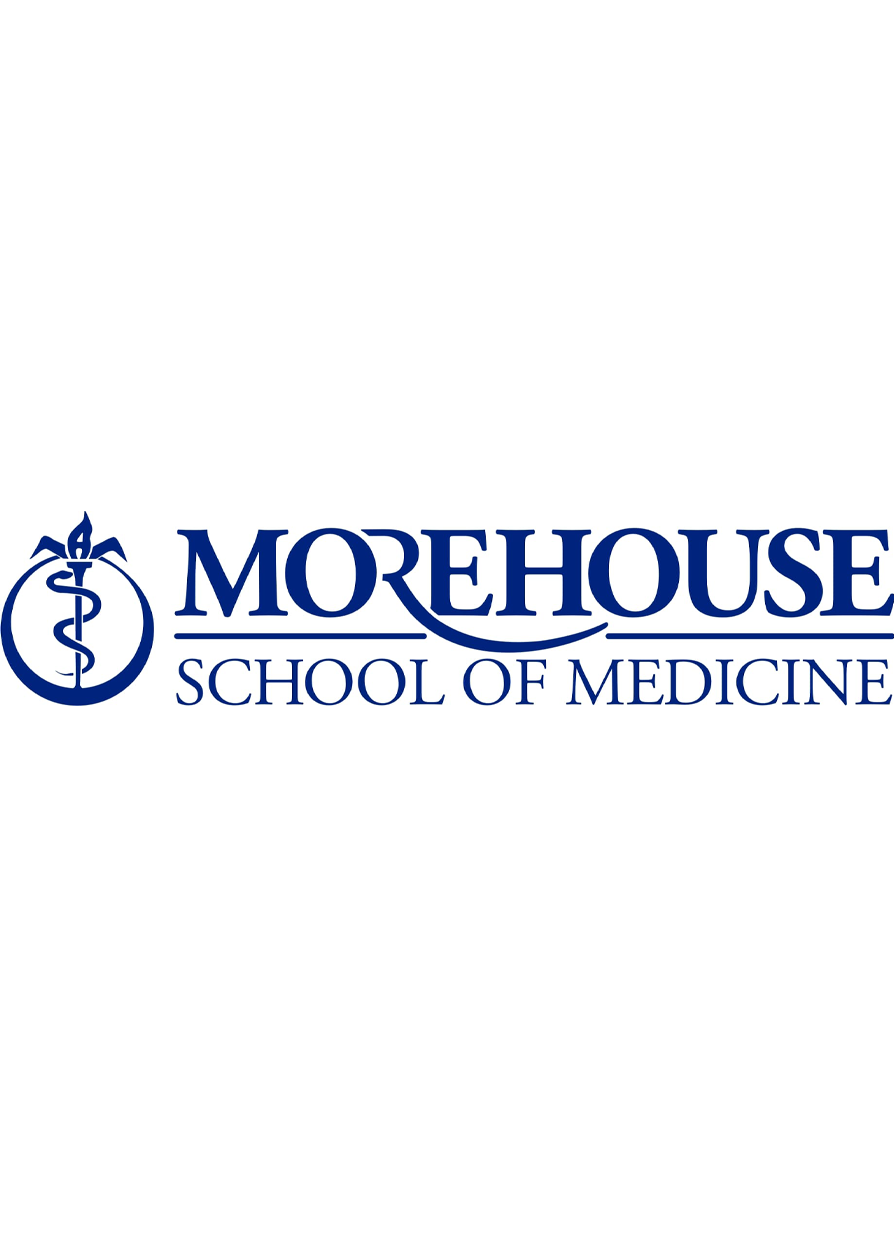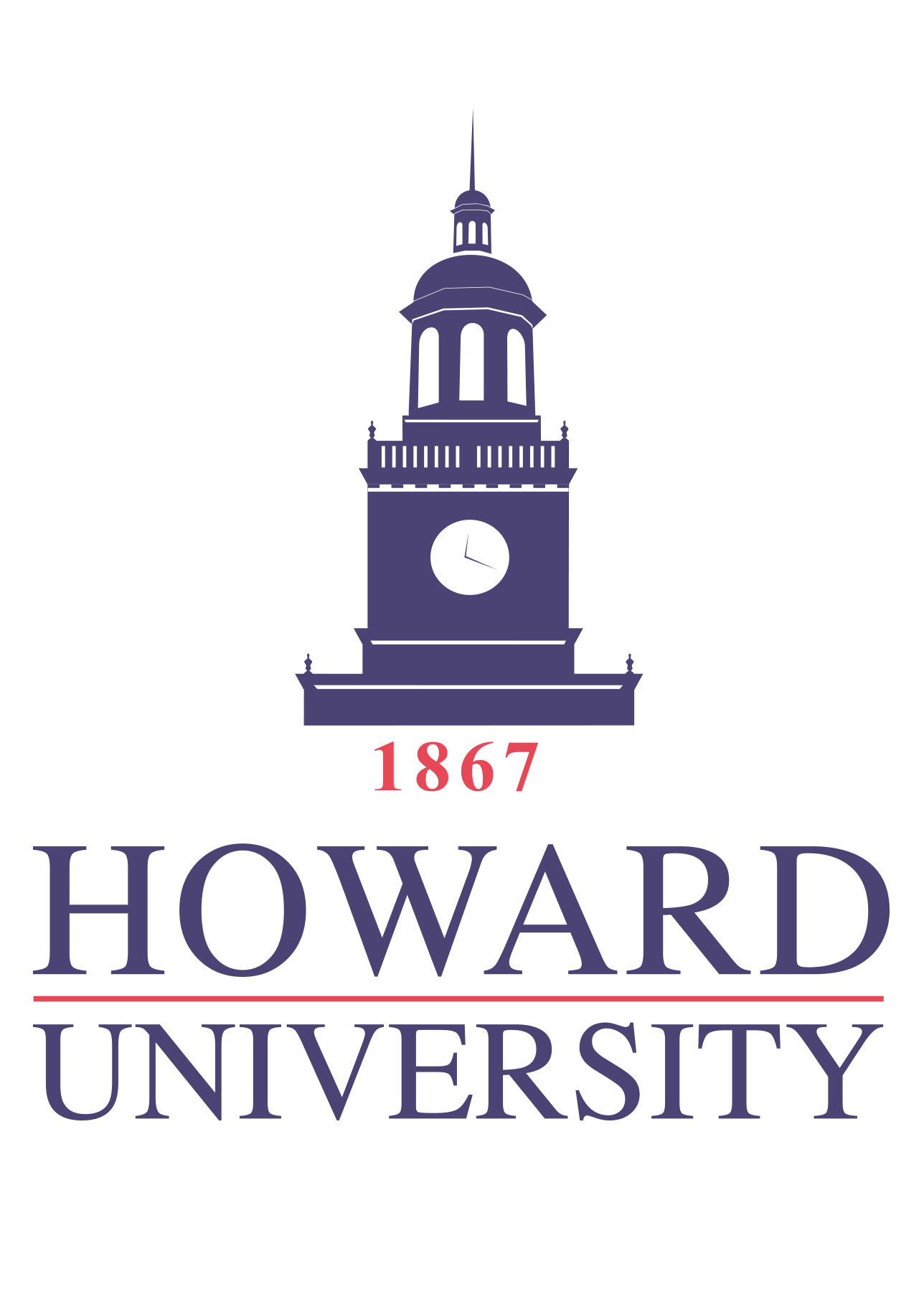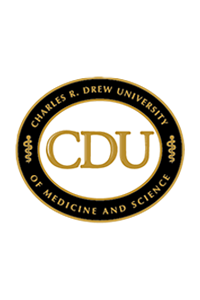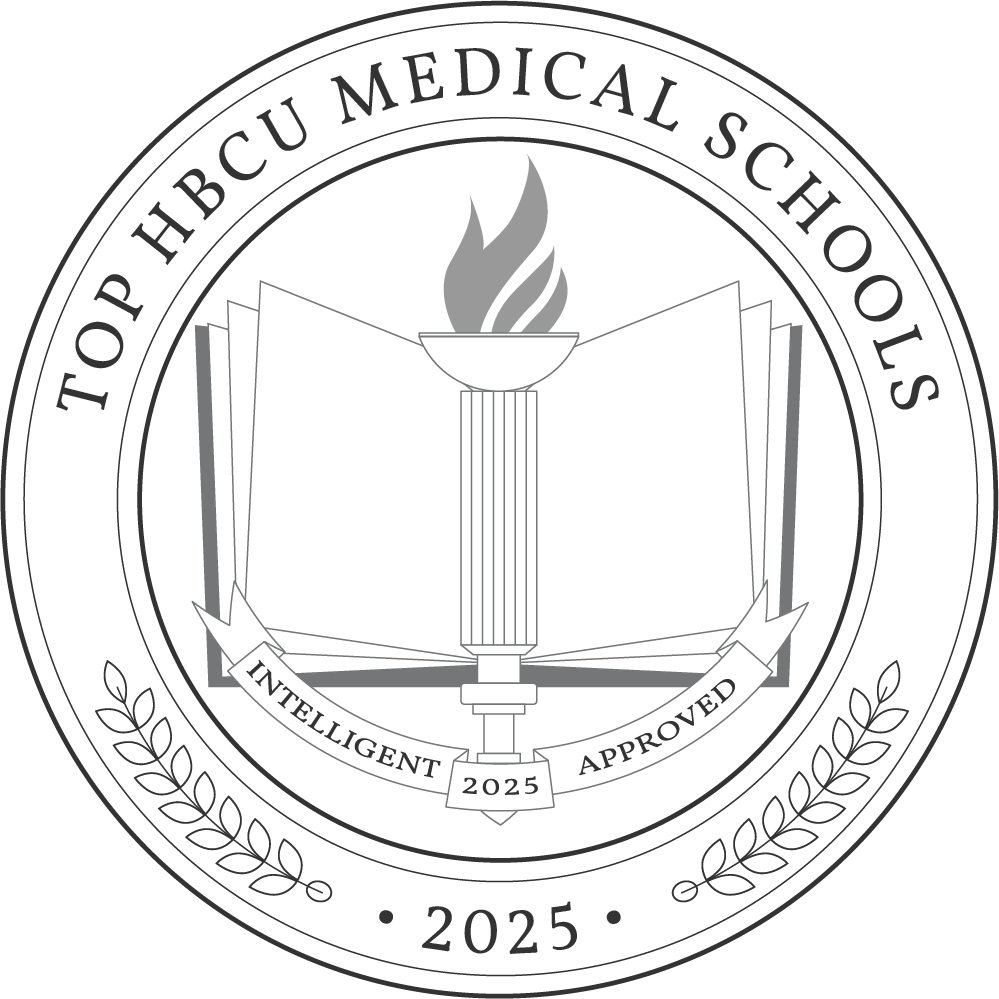Students who enroll in medical school to pursue their Doctor of Medicine (MD) degree face many challenges, including a rigorous curriculum and demanding clinical rotations. For Black and mixed-race students, earning their MD in a white-dominated school can present additional obstacles, which is why many of these students choose to attend medical school at a historically Black college or university (HBCU).
There’s currently a limited number of HBCU medical schools in the U.S., but Intelligent.com compiled this list to highlight what these schools offer and how they provide top-notch training to aspiring Black physicians. This article also includes information about the benefits of attending an HBCU medical school, what students can expect in medical school, and answers to frequently asked questions about HBCU medical schools.
Why Trust Us
The Intelligent.com Higher Education Team is dedicated to providing students with independent, equitable school and program rankings and well-researched resources. Our expert-driven articles cover topics related to online colleges and programs, paying for school, and career outlooks. We use data from the U.S. Department of Education’s College Scorecard, the National Center for Education Statistics, and other reputable educational and professional organizations. Our academic advisory team reviews content and verifies accuracy throughout the year for the most current information. Partnerships do not influence rankings or editorial decisions.
- Analyzed over 2,000 national, accredited, and nonprofit colleges and universities
- 800+ rankings pages are reviewed and updated yearly
- Content is informed by reputable sources, surveys, and interviews with academic advisors and other experts
- Over 100 data points are reviewed for accuracy and quality throughout the year, including sources
How we rank schools
Our list features the best HBCU Medical degree programs at top colleges nationwide. Each school featured is a nonprofit, accredited institution — either public or private — with a high standard of academic quality for post-secondary institutions.
We evaluated each school’s program on tuition costs, admission, retention and graduation rates, faculty, reputation, and the student resources provided for online students. We collected data from trusted sources like the National Center for Education Statistics, individual school and program websites, school admissions counselors, and other data sources. Then, we calculated the Intelligent Score on a scale of 0 to 100 based on the following criterion:
Academic Quality:
- Admission rate versus enrollment rate
- Retention rate of students who return after year one
- Accreditation status (regional and programmatic)
- Nonprofit status, both private and public institutions
Graduation Rate
- Overall graduation rate
- Total number of currently enrolled students, including diversity metrics
- Student-to-faculty ratio
Cost and ROI
- In-state and out-of-state per-credit tuition rates and fees
- Required credits to graduate
- Earning potential after graduation
- Availability of federal student loans, scholarships, and other financial aid options
Student Resources
- Available student services for online-only and hybrid programs
- On-campus amenities like tutoring centers and the number of libraries
Read more about our ranking methodology.
Best 4 HBCU Medical Schools
FiltersInstitution Type
Status
- Intelligent Score
- Alphabetically By University Name
- Acceptance Rate
- Enrollment
- In-state Graduate Tuition
- Out-of-state Graduate Tuition
- In-state Undergraduate Tuition
- Out-of-state Undergraduate Tuition

Meharry Medical College
Intelligent Score: 98.75In-state: $100,054
Out-of-state: $100,054
In-state: $64,338
Out-of-state: $64,338
SAT: N/A
ACT: N/A
$1,108 - $1,859
On-Campus
Southern Association of Colleges and Schools Commission on Colleges
Certificate: 12-15 Graduate: 30-75

Morehouse School of Medicine
Intelligent Score: 96.78In-state: $56,345
Out-of-state: NA
In-state: NA
Out-of-state: NA
SAT: NA
ACT: NA
$708 - $1,844
On-Campus
Liaison Committee on Medical Education
40-103

Howard University College of Medicine
Intelligent Score: 94.18In-state: $26,464
Out-of-state: $26,464
In-state: $32,248
Out-of-state: $32,248
SAT: 1130-1260
ACT: 22-26
$1,991
On-Campus
Liaison Committee on Medical Education
72-199

Charles R. Drew University of Medicine and Science
Intelligent Score: 92.35In-state: $39,900
Out-of-state: $39,900
In-state: $124,800
Out-of-state: $124,800
SAT: 810-970
ACT: 18-24
Associate: $600Undergraduate: $522Graduate: $1,766
On-Campus
Liaison Committee on Medical Education
Certificate: 39 Associate:84 Undergraduate: 120-121 Graduate: 36-101
Why Attend an HBCU Medical School?
Although all postsecondary institutions in the U.S. are open to all students of racial and ethnic backgrounds, many Black students choose to further their education at an HBCU because of their focus on inclusivity and the needs of Black students.
According to a 2022 study by Harvard Medical School, the University of Central Arkansas, and Northwestern University, Black medical students who attend HBCU medical schools report having a greater sense of belonging and confidence in their academic abilities than those at predominately white medical schools. The study also shows that Black medical students at predominantly white institutions are more likely to face discrimination, which can have significant impacts on their training and future job prospects.
Training more Black doctors is critical to improving the quality of healthcare in the U.S. As of 2023, only 5.7% of U.S. doctors were Black, despite the fact that Black Americans account for nearly 14% of the U.S. population. HBCU medical schools play a key role in improving access to medical training for Black students in the U.S.
What to Expect from an HBCU Medical School
Medical schools are specialized academic centers housed within larger institutions that provide students with the classroom and clinical experiences necessary to become a licensed physician. Most medical schools in the U.S. train students in allopathic medicine and award a Doctor of Medicine (MD) degree, though some focus on osteopathic medicine and award a Doctor of Osteopathic Medicine (DO) degree.
Medical school programs can have a primary care or research emphasis. Both types of curricula prepare students for their medical licensing examinations, but students may want to consider their professional interests and aspirations when choosing whether they want a research-focused or patient care-focused curriculum.
To become a licensed physician, students must spend four years in medical school, followed by 3-7 years as a resident in a teaching hospital. During the first two years of medical school, students participate in classes and labs focusing on basic sciences, such as anatomy, biochemistry, and pathology. They also begin learning skills related to interviewing and examining patients. At the end of their second year, medical students take the United States Medical Licensing Exam (USMLE) Step 1, which students must pass in order to continue on their medical school journey.
In the third and fourth years of medical school, students participate in clinical rotations at hospitals, clinics, and other healthcare facilities. This allows students to get hands-on medical experience under the guidance of licensed doctors and healthcare professionals and explore potential career paths by exposing students to various areas of specialized medicine. At the end of the fourth year, students must take the USMLE Step 2.
While technically students who reach this level have completed medical school, in order to become a fully licensed doctor, medical students must then complete a 3-7 year residency at a teaching hospital and pass their USMLE Step 3 exam. Therefore, students can expect their complete medical school journey to take anywhere from 7-14 years, post-bachelor’s degree.
Potential courses you’ll take at an HBCU medical school
- Anatomy and Physiology: Reviews the structural systems of the human body as well as how these systems intersect.
- Medical Genetics: Helps students develop an understanding of the effects of genes, development, and microscopic structure of tissues and cells in various diseases.
- Pathology: Examines the effects of drugs on health and disease and the functional and structural changes of tissues in common medical diseases.
- Microbiology: Covers how chemical interactions in the human body can result in health and disease.
What Can I Do with a Medical Degree?
For most students who earn a medical degree, the end goal is working as a licensed physician. Physicians work in a variety of settings, including hospitals, urgent care centers, community health clinics, private practice, and more. Because of the highly specialized nature of Western medicine, most doctors focus on a particular area of medicine, such as oncology, cardiology, internal medicine, surgery, or pediatrics.
Another option for individuals with a medical degree is to focus on research in disciplines such as pharmaceuticals, laboratory sciences, or health services. There are a number of available career pathways for medical researchers, including studying pathogens to develop and improve treatments for diseases and infections or finding ways to promote public health and wellness through preventative care and healthy habits.
Licensed physicians can also focus on training the next generation of healthcare professionals by teaching at medical schools and teaching hospitals. Individuals often need some professional experience in healthcare settings before they’re considered qualified to teach, but this can be an ideal option for those who don’t want to spend their whole career working in direct patient care.
Overall, this is an ideal time to pursue a career in the healthcare field. The Bureau of Labor Statistics reports that employment in healthcare professions will grow at a faster-than-average pace through 2032, with an average of 1.8 million new job openings each year during that time period.
Career outlook
- Physicians – Diagnose injuries or illnesses through examinations, medical histories, and diagnostic tests, and treat conditions through prescriptions, diet, hygiene, and preventative care.
- Median annual salary: $239,200
- Projected employment growth (through 2033): 4%
- New jobs projected: 23,600 per year
- Medical scientists – Conduct research aimed at improving overall human health using clinical trials and other investigative methods to reach their findings.
- Median annual salary: $100,890
- Projected employment growth (through 2033): 11%
- New jobs projected: 8,900 per year
- Postsecondary instructor – Instruct students in medical school in lecture- and lab-based courses while conducting research and publishing findings in academic and medical journals.
- Median annual salary: $105,650
- Projected employment growth (through 2033): 8%
- New jobs projected: 118,900 per year
How to Choose the HBCU Medical School That’s Right For You
Consider your needs and goals
While selecting an HBCU medical school might be your top priority, there are other important factors to consider when choosing which medical school to attend.
Think about your ultimate career goals. If you want to work in patient care, seek out programs that emphasize training for direct care roles. If you’re interested in research, look for programs that have a research emphasis so you can gain experience in this area of medicine.
Also, consider whether you want to be a general practitioner or specialize in a particular area of medicine, such as neurology, cardiology, pediatrics, geriatrics, surgery, emergency care, or obstetrics and gynecology. This will help you narrow your search to programs that offer concentration opportunities in your area of interest.
Lastly, think about logistics. Because HBCU medical schools are limited, attending one may mean moving to a different area or state. If relocating isn’t possible, you may want to expand your search to medical schools in your area.
Research schools and programs
Once you’ve established your parameters, begin gathering information about HBCU medical schools.
Regardless of what type of medical school programs you’re researching, it’s essential to ensure that both the institution and the program are accredited. Accreditation impacts students’ eligibility for financial aid, medical licensure, and future employment opportunities. Students can confirm a school’s accreditation using the Council on Higher Education Accreditation (CHEA) database. The Liaison Committee on Medical Education (LCME) accredits medical education programs in the U.S. and ensures that programs meet the required standards for medical licensure.
Students can research HBCU medical schools by visiting websites, attending open houses or information sessions, speaking to admissions counselors or program representatives, and following programs on social media.
Asking the following questions can help students determine whether an HBCU medical school is a good fit:
- What does the curriculum consist of?
- What are the clinical rotation requirements?
- Who are the faculty members, and what are their qualifications?
- What support services are available for students, including tutoring, counseling, tech support, library resources, and networking opportunities?
- How much does the program cost, and what financial aid resources are available?
Determine how you’ll pay for medical school
Attending medical school is a significant financial undertaking, not just because of the length of programs, but also because the rigorous demands of coursework, clinical rotations, and residency requirements prevent students from having steady employment while completing their programs. Therefore, it’s important for students to carefully plan how they’ll pay for medical school.
There are two forms of financial aid — need-based and merit-based. Schools and external organizations award merit-based assistance to students with academic or extracurricular achievements. Merit-based aid typically comes in the form of scholarships, grants, or fellowships and doesn’t need to be repaid.
For need-based aid, students must complete the Free Application for Federal Student Aid (FAFSA). Need-based aid includes federal student loans, grants, scholarships, work-study, and assistantships. Graduate students are eligible for Direct Unsubsidized Loans through the Federal Student Aid program.
If you are able to work through any part of medical school, find out if your employer offers tuition assistance benefits to help subsidize your education. Active-duty military members and veterans may be able to get discounted tuition or use GI Bill benefits to pay for their degrees.
HBCU Medical School Frequently Asked Questions
How do I apply to an HBCU medical school?
The process of applying to medical school is slightly different than applying to other postsecondary education programs. For the most specific information about how to apply to an HBCU medical school, speak to an admissions counselor at the institutions you’re considering.
Most medical schools in the U.S. use the Association of American Medical Colleges (AAMC) centralized application processing service. Students can submit their information to multiple medical schools using this service. However, students should also note that most medical schools require a secondary school-specific application, in which the student details why they’re interested in that particular institution.
The AAMC application typically becomes available in late spring for the following fall’s incoming class. Individual medical schools may have different deadlines for students to submit their secondary applications.
Medical school applicants must submit Medical College Admission Test (MCAT) scores. The MCAT is a standardized test that assesses problem-solving, critical thinking, and knowledge of natural, behavioral, and social science concepts and principles as a prerequisite to the study of medicine. As part of their application process, students should factor in time to prepare for and take the MCAT.
Students should also review the prerequisites for the medical schools they’re considering. Specifics may vary from school to school, but standard pre-med coursework includes biology, general chemistry, organic chemistry, physics, and math courses such as statistics or calculus. Medical schools often have minimum GPA requirements for undergraduate coursework.
How much does medical school cost?
The cost of medical school varies by institution. For the HBCU medical schools on this list, the per-credit tuition rate varies from $708 to $1,991. Students should consult with a financial aid counselor from any HBCU medical schools they’re considering to get the most accurate information on how much their program will cost.
How long does it take to complete medical school?
Medical school takes, at minimum, four years to complete coursework and clinical rotations. However, once students finish medical school, they must still complete anywhere from 3-7 years of residency requirements and pass their medical licensing exam to become a fully licensed physician. Most medical schools require full-time attendance. Students who enroll part-time will take additional time to complete their courses and clinical rotations.

